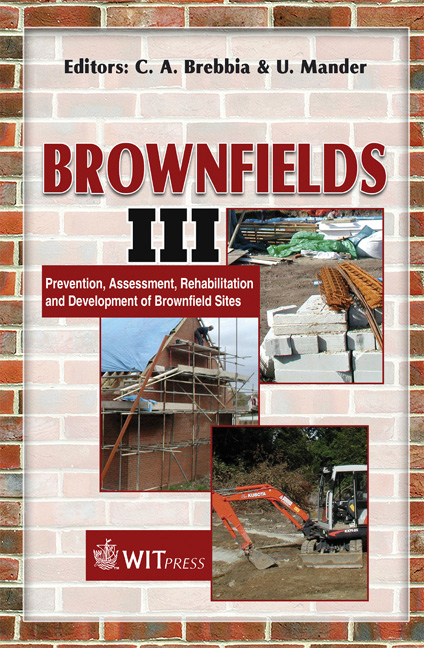Environmental Accounting Of A Waste Management System: Outcomes From The Emergy Analysis
Price
Free (open access)
Transaction
Volume
94
Pages
8
Published
2006
Size
453 kb
Paper DOI
10.2495/BF060041
Copyright
WIT Press
Author(s)
C. Granai, R. M. Pulselli & R. Ridolfi
Abstract
This paper shows an application of the emergy analysis to the waste management system in the Province of Cagliari, Italy. It aims to consider the importance of waste management within a territorial system by assessing the environmental cost and gain due, directly and indirectly, to waste management processes. It also aims to investigate different steps of this process looking for potential critical points and available strategies for a sustainable waste management in its three phases of waste gathering, waste treatment and waste disposing. A landfill and an incinerator, located within the Province, are studied in order to consider their own environmental efficiency and their role in the waste management process. The emergy method (spelt with an \“m”) is based on the assessment of all the inputs that supply the waste management system and its processes (emergy means energy memory). The expected outcomes are in the form of a comprehensive balance that shows the general behaviour of the system and its parts. Through the emergy synthesis, flows of energy and matter that are used within the process of waste management in the Province of Cagliari, are assessed by a common unit, namely the solar energy joule, and compared to each other. This is performed in order to evaluate how an integrated system including incinerator and dumps works in order to make choices and to achieve a sustainable waste management plan. 1 Introduction Global environmental conditions are seriously threatened by man and its growing production and consumption rates, especially in western countries. One aspect of
Keywords




